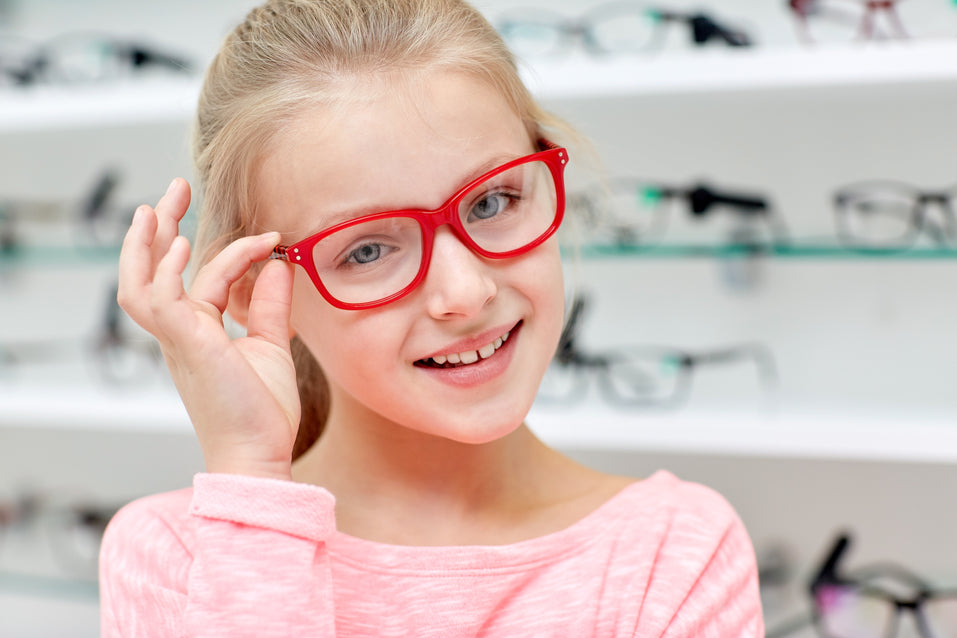
At panokids, we love assisting children in finding the wonderful set of spectacles. Different firms’ opticians have years of knowledge in assisting children in selecting frames they'll love. They've had enough knowledge of fixing frames and assisting children who have problems with their glasses to know that there are a few fundamentals that every parent must consider when purchasing spectacles for their kids.
Frames that are strong
This one is self-evident. Every child will, at some point, bend, drop, and twist their frames. That's completely understandable – kids will be kids! Your child's glasses will most likely need to be adjusted and replaced at some point, whether it's during sports, recess, trying to play with the dog, as well as falling asleep with them on. Making sure you buy a sturdy and durable frame in the very first place will help them last as long as necessary.
Opticians could perhaps advise you on which kids brands are recognized for being the most durable and long-lasting. If your kid has a high prescribed medication, it may be worthwhile to consider purchasing two pairs of spectacles so that you still have a backup in event of an emergency.
Lenses made of polycarbonate
Polycarbonate eyeglasses are the most common type of lens material that we suggest for all of the children we see in our office. Polycarbonate lenses, unlike plastic or glass lenses, are shatter-resistant. Polycarbonate is designed to crack rather than shatter if your child is hit on the head or falls. Because most children are very active, this is an important step in retaining their eyes safe but also preserving their vision.
Coating to Reduce Reflection
The anti-reflective covering is a lens treatment that is baked into the lens. We suggest it for kids because it provides clearer, sharper vision and has been shown to decrease eye strain. Anti-reflective coatings benefit children greatly when they are in school, doing homework, or by using electronics. In actuality, some anti-reflective coatings have included bright light blockers to safeguard your child's eyes from blue light, which is going to prove to be harmful to our health and is emitted by mobile phones, tablets, and computers. We never send a child out the door without first including this incredible product as a portion of their eyeglasses package.
Lenses for Transitions
Transition lenses could be a huge help to children, especially those who spend a lot of time outside. According to studies, a large portion of a Uv exposure we obtain in our lifetime occurs before the era of 18. It is critical to protect your child's face and eyes, and transitions are an easy way to do so. Transitions may be the answer to protecting your child's eyes if you don't want to carry around a set of medication sunglasses to insert on every time he or she goes outside. They could just wear their regular glasses outside and they'll be fine.
Warranty
Wherever you buy your child's glasses, make sure you understand the warranty both for frames and lenses. You never understand when an accident will occur and you'll need to replace their glasses! We will end up replacing any frame that did break within one year after purchase, and we can replace lenses that have been scratched twice inside of two years or longer since they have an anti-reflective coating.
A few words about spectacle lenses
Despite the fact that this discussion has focused on frames, here seem to be a few significant notes about your eyewear:
- Use anti-reflective coating on your lenses at all times. AR coating reduces glare, improves night vision, and allows others to see one's eyes more clearly.
- Select polycarbonate or higher filler lenses with just an aspheric design for thinner, lighter, and more appealing lenses. Polycarbonate lenses are also the best option for sports eyewear but also eye protection because they are lighter and have much more impact than other materials.
- Photochromic lenses that darken automatically in sunlight are a great option if you spend a lot of time outside and don't want to carry a pair of glasses with you. Why should you wear bifocals or trifocals if you're over 40? Progressive lenses with no lines provide real direction at all distances and times and give older people a much more youthful appearance.
Conclusion:
Finally, keep in mind that you have a lot of options when it comes to eyeglasses, which can be overwhelming. To find frames but also lenses that will make you look and see your best, take the guidance of a skillful optician or use those many online frame finders.
